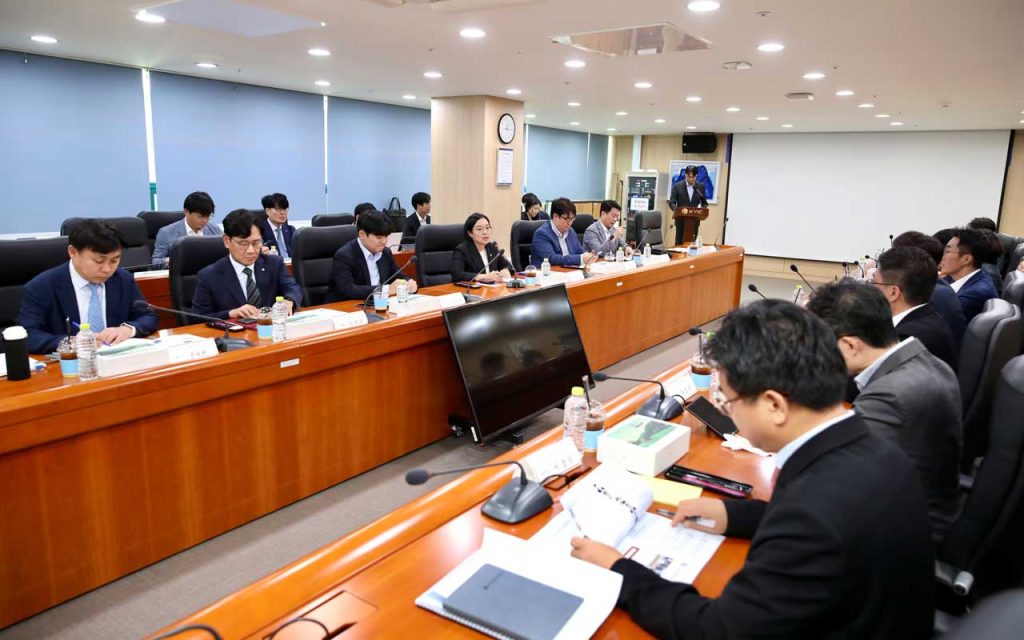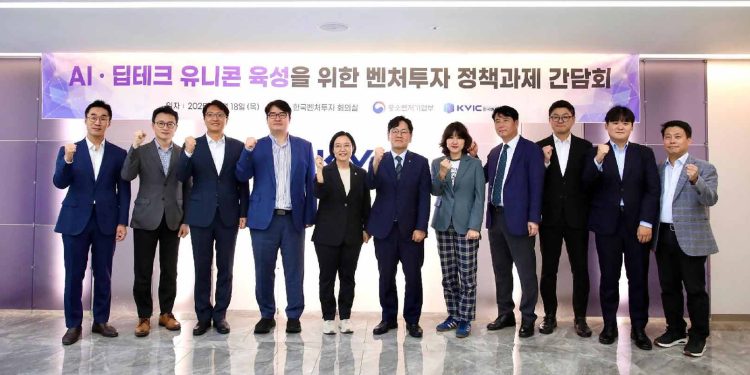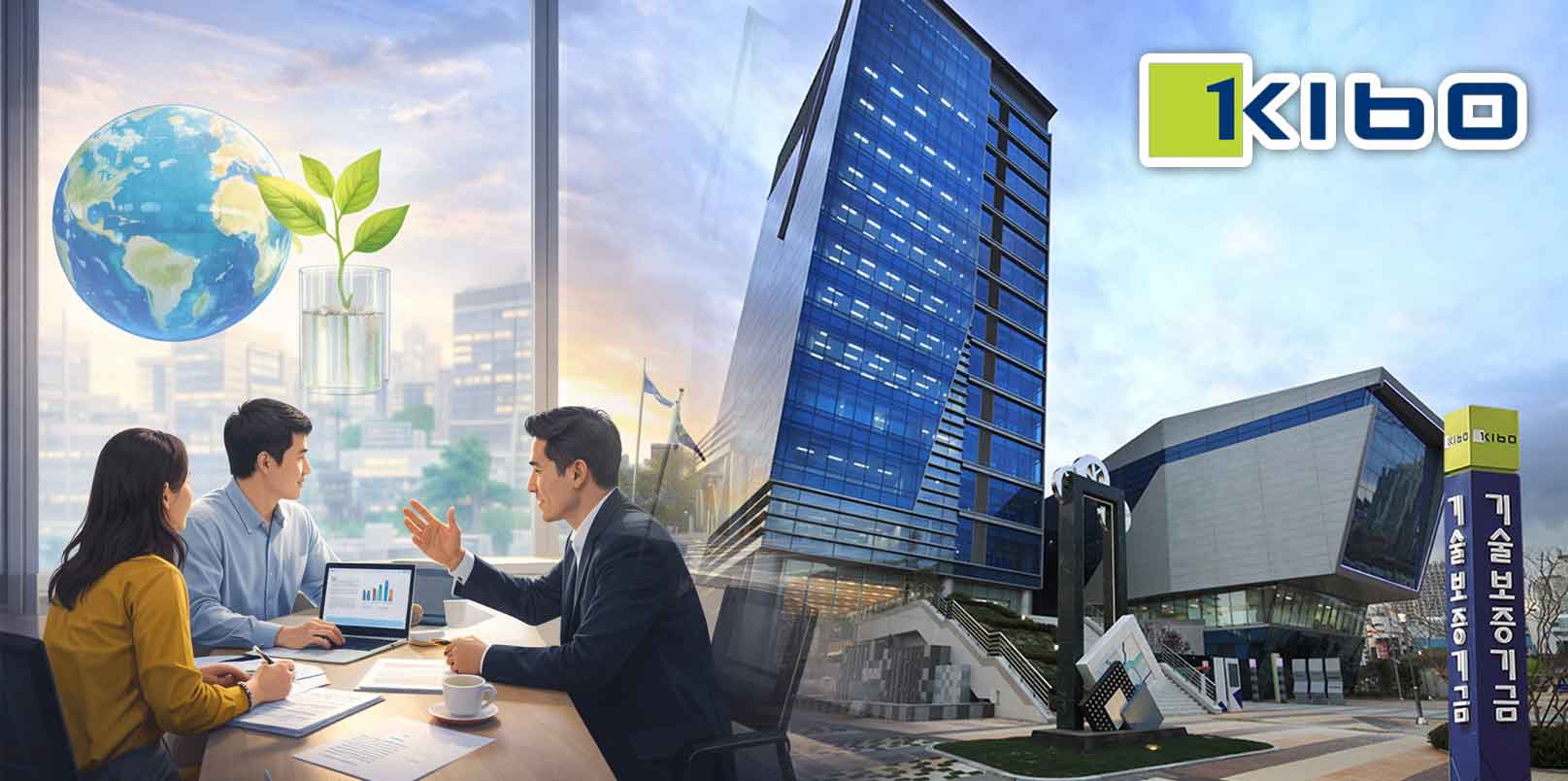After weeks of discussions and preview, South Korea has finally unveiled more about NEXT UNICORN Project, one of its most ambitious venture capital initiatives yet, involving KRW 610 billion (~ USD 445 million) fund. Designed to propel AI and deep tech startups beyond the early stage and into global markets, the program highlights Korea’s intent to close the long-criticized “scale-up gap.” With Coupang, Toss, and major venture capital firms at the table, the initiative signals a critical shift in how the country plans to produce world-class unicorns.
Korea Unveils NEXT UNICORN Project with ₩610B ($445M) Fund
Following the previous announcement of VCs selection, the Ministry of SMEs and Startups (MSS) convened a roundtable at Korea Venture Investment in Seoul on September 18, 2025. Minister Han Seong-sook announced detailed plans for the NEXT UNICORN Project, a flagship policy program to nurture AI and deep tech unicorns.
The initiative mobilizes KRW 610 billion (~ USD 445 million) in venture funding, split into a “Startup Fund” and a “Scale-up Fund.” Coupang has committed KRW 75 billion to the scale-up fund, which will also receive government-backed contributions.
The goal is to provide an average of KRW 10 billion (~ USD 7.3M) or more in growth-stage financing for startups — unprecedented for Korean policy funds.

Addressing Korean Startups’ Scale-Up Phase
For years, Korean founders have argued that venture support thins once companies outgrow early-stage programs but remain short of large corporate scale. The new project directly addresses this “missing middle” by targeting the scale-up phase, which requires high-risk, large-ticket investment.
This aligns with Korea’s broader strategy to position itself among the world’s top four venture ecosystems, alongside the U.S., China, and Europe. It also reflects global patterns where countries like Singapore and Israel deploy state-backed capital to anchor strategic industries such as AI, semiconductors, and deep tech.
Voices from the Frontline: How Founders, Corporates, and VCs See the Path Forward
At the roundtable, founders and investors stressed the importance of designing the fund in a way that rewards innovation and resilience rather than academic pedigree.
Founders Call for Inclusive and Risk-Tolerant Investment
Neubility’s CEO, Lee Sang-min, expressed a hope that the NEXT UNICORN Project “isn’t reserved only for PhDs,” adding that young entrepreneurs with passion and commitment should also be trusted and supported. His comment reflected a broader sentiment among early-stage founders who often face barriers when rigid qualifications are applied to funding opportunities.
From the deep tech side, Standard Energy CEO Kim Boo-gi, who led the world’s first development of a vanadium ion battery, pointed out the limits of existing frameworks,
“Our vanadium ion battery technology hadn’t even been published before our own paper. Because existing government projects favored established technologies, we struggled to qualify. If a company has already secured private investment and validation, then R&D and loan programs must be more accessible. Government funds should take bolder risks to nurture real innovation.”
Corporates and Investors Stress Boldness and Fundamentals
The call for boldness was echoed by Toss CFO, Seo Hyun-woo, who emphasized that large-scale government investment during the scale-up stage played a decisive role in his company’s trajectory. “Such investments send a strong signal to the market and were crucial for us in attracting global follow-on funding,” he noted.
Coupang’s CEO, Park Dae-joon, offered a perspective from a company that has already made the unicorn journey. He acknowledged that today’s startups face a very different environment than when Coupang scaled, which is why the company has committed KRW 75 billion to the fund. “We want to act as a catalyst for the next generation,” Park said, underscoring Coupang’s willingness to reinvest its own success into the ecosystem.
Yet some cautioned that the size of investment must be matched with the fundamentals of recipient companies.
KB Investment CEO Yoon Beom-ryeol remarked that while investing around KRW 10 billion per company represents an extraordinary opportunity, “we also need more companies with the capacity to absorb and use such capital effectively.” His comments pointed to the importance of strengthening the foundations of Korean startups so they can scale responsibly when given unprecedented levels of funding.
Bridging the Scale-Up Gap: Why the NEXT UNICORN Project Matters for Korea and Beyond
The NEXT UNICORN Project could help transform Korea from a strong early-stage startup hub into a global venture capital powerhouse. By bridging the gap between seed-stage support and large-scale corporate investment, the initiative seeks to:
- Accelerate AI and deep tech scaling where capital intensity is highest.
- Strengthen Korea’s venture capital market by involving leading corporates and VCs.
- Build a pipeline of global-ready startups capable of competing in logistics, fintech, energy, and life sciences.
For global investors and founders, this signals a maturing Korean venture environment, one where state policy and private capital converge to fuel cross-border growth. Comparable to initiatives in Singapore’s Temasek-backed ecosystem or Japan’s JIC funds, Korea is sharpening its competitive edge.
Building a Virtuous Cycle of Innovation and Global Growth
Finally, Minister Han Seong-sook framed the NEXT UNICORN Project initiative as part of a long-term ecosystem strategy,
“If the know-how of established unicorns combines with the ideas of emerging startups, and bold VC investment supports them, a virtuous cycle of innovation will form. This will produce not only more unicorns but also globally leading big tech champions.”
This sends a clear message for Korea’s startup scene that the government-backed capital is now moving upstream. Therefore, if executed effectively, the NEXT UNICORN Project could redefine Korea’s position in the global innovation economy — shifting it from a fast-follower nation to a hub where AI and deep tech scale-ups are born and thrive.
– Stay Ahead in Korea’s Startup Scene –
Get real-time insights, funding updates, and policy shifts shaping Korea’s innovation ecosystem.
➡️ Follow KoreaTechDesk on LinkedIn, X (Twitter), Threads, Bluesky, Telegram, Facebook, and WhatsApp Channel.






